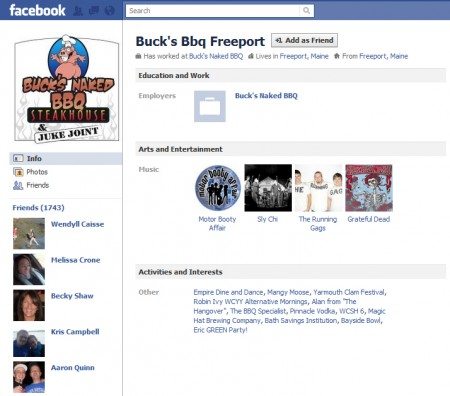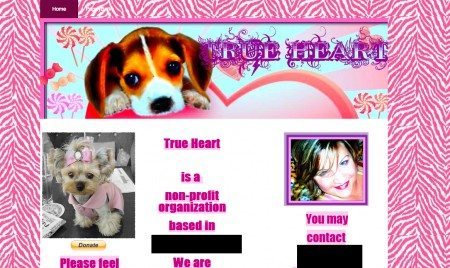Every Monday, I talk about internet marketing. I profile companies, interview people, and answer questions. Please let me know if you have an idea for a future post!
I thought it might be fun to do a post about some recent (and frequent) questions I’ve gotten both via email from clients and during presentations. Maybe this can help someone else or maybe just make you a more conscious person online. In any case, here are a few basic ones in no particular order:
Why do people follow me on Twitter then unfollow me right away?
I love this Twitter ‘strategy’ that some people have really picked up on lately. This is how it works (for the person doing it):
1) Find people on Twitter.
2) Follow them.
3) Wait 24-48 hours.
4) Unfollow them.
5) Smile as you think you’ve increased your follower numbers without the other person realizing you did this.
This plan works well on the surface since many people have their accounts set to automatically follow anyone who follows them on Twitter. But there are at least five free services where people can be notified when they are unfollowed by someone on Twitter. Other people besides me will no doubt catch onto this and the Twitter users who appear and disappear will get a reputation for being a spammer.
Instead, I just follow people on Twitter I want to follow and don’t follow back people I don’t want to. Among the things I look at when I make my follow decision are:
1) Their website in their profile. Is it lame? Or does the link no longer work? Is the link title misleading to what the website actually is? None of these are good signs.
2) Their profile picture. Is it some sexy woman stock photograph? Do they tweet about a bunch of random stuff? Probably a spammer.
3) Their last 3-4 tweets. Are they useful? Are they telling me to buy a bunch of random products I don’t need? Are they on topic?
4) How many people follow them. Are they following 2,000 and are followed back by 200 people? That means they are part of the noise, not the conversation.
Another way to manage your list if you automatically follow people back is do what my friend Lynelle does and check your list every couple weeks to unfollow people who are spamming or otherwise annoying you.
Why do some business Facebook pages have friends instead of fans?
You realize you wanted your business page to be seperate from your personal page. So you made a profile: First Name: “Breaking Even” Last Name: “Communications”. This restaurant did this very thing:

It was suggested I be 'friends' with this BBQ pit. A business should have people who like it, not friends. This is against Facebook user policy, and could be wiped out at any point because it's violating terms.
There are two reasons people seem to do this, which is actually incorrect in terms of Facebook page setup:
1) They don’t know what they are doing.
2) They want to intentionally have a profile so they can message customers directly. (Business pages can only send updates.)
Most of the time, I find the situation is more number 1 than number 2, which is always reassuring. That said, even if you did this without malicious intentions to spam your client base, it is still against Facebook user policy to set up a business page as a profile and Facebook is beginning to delete profiles that are doing this. And do you really want to start over with a proper page once you’ve built up your friends (who should actually be fans)? Probably not.
Here is how you can fix this if you’ve done something similar:
1) Once you are logged in as yourself (not your fake business profile), go to www. facebook.com/pages and click the ‘Create Page’ button.
2) Follow the steps and publish the business page in its correct form. Add information to this page so people can find it in searches and so it looks legit.
3) Ask everyone that is ‘friends’ with the fake person to move to the new business FB page, giving them the link on the fake person’s wall. If you feel ambitious, also email your fans to tell them you are moving with the new link.
4) Wait 24-72 hours to give people a chance to move.
5) Delete the fake person. Enjoy being a legal Facebook business page owner.
Or you can ask for help from someone who knows what they are doing. Remember just because someone uses their personal Facebook profile a lot doesn’t necessarily mean they know how to set up a business page correctly! After you have a page, make sure you are an administrator on the page even if you don’t use Facebook yourself, just in case there is ever an issue.
Why do people use the contact form of my website to send me really weird stuff?
Often, these are a dead giveaway of spam. This is almost verbatim an email I got two weeks ago when someone filled out the contact form on my website: ‘Dear Sir/Madam, Many Canadians have no idea they qualify for home refinancing…” I think they wanted me to write about this program on my blog but I’m still not entirely sure.
Now, a quick look in the ‘About’ section of my website would have told this person that I am a madam and that I am not Canadian. Clearly, I am not the target audience for this product. People may want to reach out to websites like yours to find new suppliers for a wholesale product, to get their book reviewed, or any number of reasons and they may not be as thoughtful as they should be.
Meanwhile, you can learn from this situation. If you want to build a relationship with through someone’s website or blog, do a little detective work in the About, Contact or FAQ section of the website before writing to the person. Can’t get a name? Get something else, like their blog topic or some other reason why you are contacting them. You can even be nerdy about it and keep all your data about different websites in a spreadsheet to keep it all straight and be able to find the information easily later.
Let’s rewrite the email above having looked at my site for two minutes: “Dear Nicole, I see you have a marketing blog and may or may not own your own home. I wanted to let you know about a program for Canadian home owners that may be a good blog topic (Marketing Monday maybe?) for your Canadian readers…” The rest of the email could be a press release but at least I know the person took the time. I would actually read and respond to this email, wouldn’t you?
Even though it takes a little longer to research and write more personal emails, I guarantee you will get a lot better responses and better results from people you correspond with online, especially if they have never met you. The internet is an impersonal space and if you can make it a more personal connection, you are two steps ahead of the game and no longer wasting your time contacting irrelevant people. And if someone irrelevant contacts you, just delete it. If they really want to contact you, they can make it more personal next time!
How can I make my company website less corporate and more personal?
I am all for fun websites. I tried crazy patterns on my Myspace page back in the day. I experimented with fonts in emails to friends. I posted cutesy pictures on my personal blog. But I did so without wanting people to take me too seriously.
I just got followed by the person on Twitter who runs a non-profit. Here is the non-profit’s website:
Don’t get me wrong, I do have a pink website myself. But I like to think my website is fun while still allowing people to take me seriously. Your business or non-profit site should be the same, especially if you want money from people. Your website is peoples’ first impression of what you do. Make decisions accordingly. By looking at websites comparable to your own (related non-profits, friends’ business sites, etc.), it’s easy to see how to make a business or non-profit website personal without making it look like their favorite 8 year old made it. No offense to 8 year olds of course!
Things you should never sacrifice for looks/personality: being able to search/find information, a clear purpose (What should people do when they get to your site?) and contact information findable on every page.
And if you want the hard truth about a website’s functionality, I am happy to tell you in a really nice way.
Have a question yourself? Comment below and maybe I’ll write a fun blog post about it!

